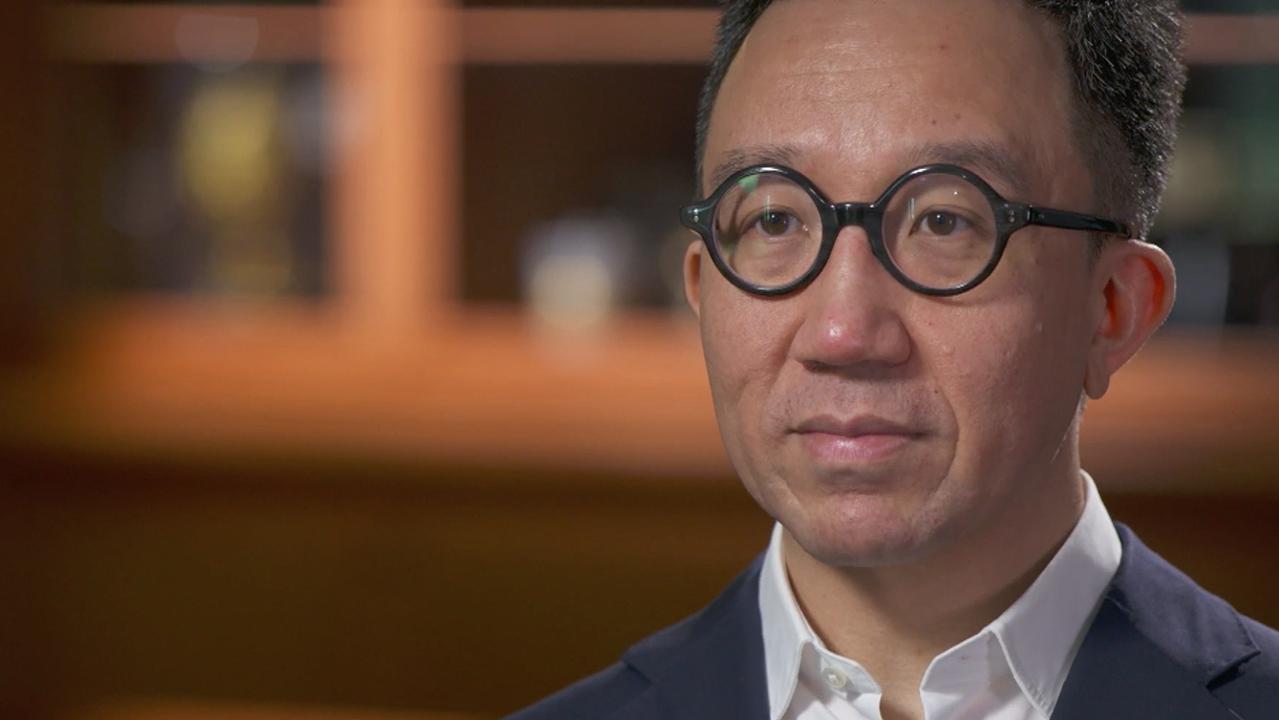Public health expert warns coronavirus ‘could infect 60 per cent of world population’
A leading public health expert has warned that up to 60 per cent of the world’s population could become infected by coronavirus, killing 45 million.
A leading public health expert who spearheaded the fight against SARS has warned that up to 60 per cent of the world’s population could become infected by the new coronavirus.
Professor Gabriel Leung, chair of public health medicine at Hong Kong University, is an expert on coronavirus epidemics and played a key role during the SARS outbreak in 2002 and 2003.
RELATED: Follow the latest coronavirus updates and death toll
Speaking to 60 Minutes on Sunday, he warned that COVID-19 is “certainly more infective (than SARS), and it’s also very difficult to try to control it”.
“The big unknown now is really how big is the iceberg,” he said.
There have now been more than 106,000 confirmed cases globally and nearly 3600 deaths since the start of the outbreak in December, a mortality rate of around 3.4 per cent.
“I don’t know, but I’m suspecting that (there are many more people infected),” he said.
“Everybody is susceptible. If you assume that everybody randomly mix with each other, then eventually you will see 40, 50, 60 per cent of the population get infected.”

At current mortality rates for COVID-19, that could mean between 45 and 60 million deaths worldwide — in the first wave alone.
“We have to prepare for that possibility that there is a second wave,” he said.
In Australia, a third person died in hospital overnight from the virus, while authorities in several states reported a wave of new cases bringing the total to 79 as of Sunday evening.
Professor Leung said it was likely there were many more undetected cases.
“For every death you would expect to see 80 to 100 cases,” he said.
“So if you start seeing deaths first before you start picking up large numbers of cases the only conclusion that one can reasonably and scientifically draw is that you hadn’t been testing nearly early enough or extensively enough. Unless you go and test, you’re not going to find.”

Professor Leung said it didn’t appear that any country had been “completely successful at 100 per cent containment and driving back into the wild”.
“There is now an emergency going on and what we must do is very rigorous infection control,” he said.
“Now is the time to really pull out all the stops, put everything you got into it to fight it. We have to give it the whole-of-government approach. Give it all you got, throw everything at it quick and early and hard. That will buy you sufficient time and if you’re extremely lucky, you might even be able to contain it.”
He warned that if millions of people became infected, it could “bring about another massive instance of health inequity” where only those in wealthy countries with robust health systems would survive.
“This disease actually is only treatable if you have got ICU beds, if you’ve got ventilators, if you’ve got good drugs availability to tide the people over when they get really sick,” he said.
“(The people who survive will be) in health systems that can afford it.”




